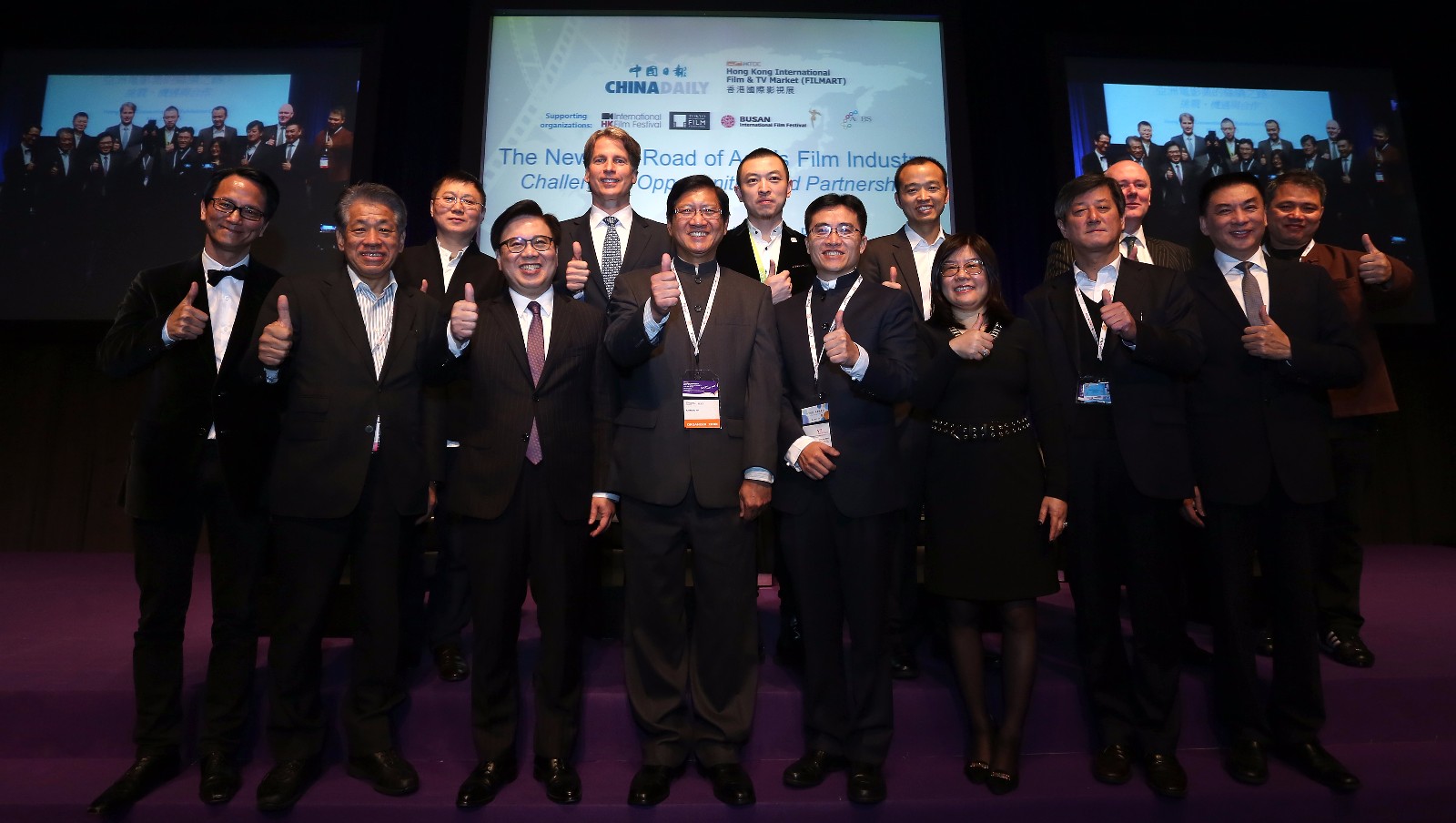2015-04-09
Karen Chu

The "New Silk Road" for film industry should not just be targeting the Chinese market, but for all Asian countries to develop in tandem, panelists said at a forum at the Hong Kong Filmart. The purpose of the forum is to find out how Asian film can collaborate and compete with each other to create a bigger Asian film industry. Based upon by the "New Silk Road" concept proposed by Chinese president Xi Jinping in 2013, that encompasses economic ties and infrastructure construction between China, its Asian neighbors, the Middle East and Europe, the forum focuses on the difficulties facing pan-Asia and East-west co-productions. "We need to set up a fund across Asia that will start new projects. This fund can be set up and a lot of government agencies and business institute can join as well. We can accelerate the development of the Asian film industry. This is also what Xi Jinping mentioned as the new Silk Road. The new Silk Road should not just be targeting China, but all Asian countries to develop in tandem," said Lee Yong Kwan, Busan International Film Festival director. For each of the Asian countries' film industries, films have to gain traction first in their countries of origin then expand. "Films' first market is the local market. In the future, we have to penetrate the Asian market first then the North American market," said Zhu Huilong, CEO of Heyi Pictures and senior vice president of Youku Tudou Inc of China. "The first sign of success is to gain a foothold in your own market, then it's for the neighbors because there are more commonalities," said Raymond Zhou, columnist and film critic of China Daily. Much has to be overcome to create co-productions in Asia. "It is much easier to invest in new infrastructure, but for creative industries, you have to overcome a diverse group of languages, cultures, people with different taste and ages. It's not as easy to create a Silk Road just by investing," said Wilfred Wong, chairman of the Hong Kong International Film Festival Society and the Asian Film Awards Academy. The way ahead for co-productions is not only targeting China, but other emerging markets as well. For example, Thai films are gaining popularity in the countries' neighboring regions, namely Cambodia and Vietnam, said Thailand's Pantham Thongsang, Deputy secretary for Academic Affairs, The National Federation of Motion Pictures and Contents Association. So the country's Transformation Film is working with South Korea's CJ Entertainment to produce films that will travel to Southeast Asia. While the concept of co-productions is not new, movies created as collaborations between different regions run the risk of being everything to everyone but nothing to all, said William Pfeiffer, CEO of Hong Kong-based Dragongate Entertainment. "Movies try to hit all targets end up hitting none of it," said Pfeiffer. Some are skeptical of the co-production phenomenon due to the lack of success stories for co-productions in recent years. "The most successful Japanese co-production was Merry Christmas Mr. Lawrence in 1983, and that was thirty years ago, said Yasushi Shiina, Tokyo International Film Festival director general. But Shiina also admitted co-productions are the way forward, as the Japanese population is aging, its film market is facing a 30% decrease in market revenue. "Films that are 100% made in Japan is coming to an end," said Shiina. The Holy Grail is to find a movie that works in different regions, said Clifford Coonan, Asia Bureau Chief of The Hollywood Reporter. Coonan named the upcoming Zhang Yimou–directed film Great Wall that will star Matt Damon, Willem Defoe, and Andy Lau as a test case for the future. "The film has an international cast, so that's possibly the way forward, that would work both in China and overseas. It will be a test case of how things can work in the future." http://www.hollywoodreporter.com/news/hong-kong-filmart-new-silk-784218